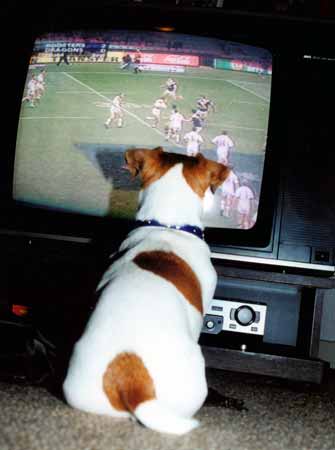Dave Shepard
Square peg, round world.
This place is awesome!




Good stuff, I'm learning a lot here.OK, people, me to. Set "people" off with commas since you are addressing them directly, same as if you said, "OK, Mike, me too." Add an "o" to the word "to" at the end of the sentence...too means "also."
Only catch, you have to tell me why it's wrong so I can learn.
The word "it's" is "ok"..since you are showing the contraction "it is". If you wanted to show the possessive form of "it" you would write "its" without an apostrophe.
"The dog made its choice" would not have an apostrophe.
After thinking a minute, that makes sence. Because the dog does'nt make "it is" choice, it makes its choice.
Tell me more of to and too, if you're so inclined.

Good stuff, I'm learning a lot here.
That whole "set off with commas" deal is something I have struggled with.
I haven't had any formal schooling in english since college,and there I managed to get myself expelled from english classes for over a year.
I bitched loudly and often about them insisting that we learn british english and proper ( propaaah.....actually!) british pronounciation, while at the same time having us work on texts by american writers like John Steinbeck.
I finally managed to be a big enough nuisance, and they tossed me out.
Ironically, only two years later it was officially decided to let students choose between american and british english.
I did take the graduation examination in english and made a straight A,just to prove I could do it.


The apostrophe takes the place of the "o" in not for does not...therefore, doesn't.
 I think i can remember that.
I think i can remember that.To is a preposition which begins a prepositional phrase or an infinitive...such as "to the store" which denotes location which prepositions often do (in the car, around the limb, over the stump, under the rigging)

You are a masochist, bro!!!
Fear not the edit function, Three out of five of my posts will be edited after I've read them and I've see my mistakes. My words and my work are a reflection of ME.

It's not "its," it's "it is," or "it's." It's a contraction.


 Well, all threads that remember to capitalize
Well, all threads that remember to capitalize {--- Theres a capital d in that smily face by the way
{--- Theres a capital d in that smily face by the way
I try to write like I speak. I think grammar nazism is a refuge for people who can almost write well. Writing is expression and English sucks in that respect... it's a dispassionate language for merchants and politicians.
.
It's "its" if it's a possessive pronoun.
Yea, I see that and would write it like that, but I don't really understand why I do it.
